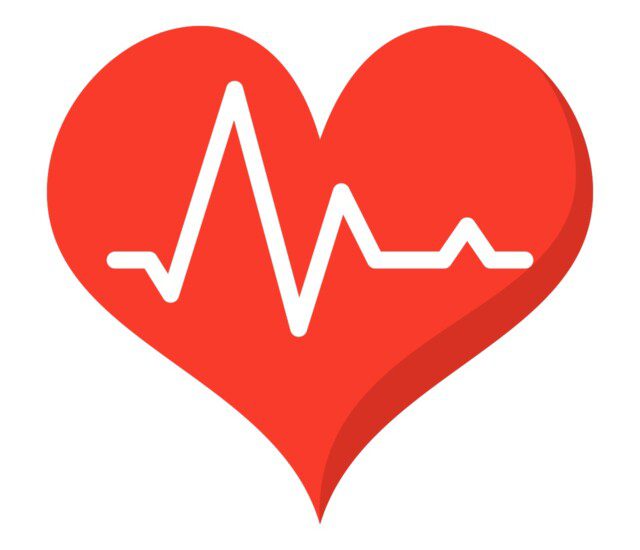According to the Centers for Disease Control and Prevention, heart disease is the leading cause of death in the United States. While heart disease can impact people of all ages, older adults are at a higher risk as the body changes with normal aging.
Fortunately, there are some simple steps you can take to keep your heart healthy. Read on to discover six easy and effective ways to reduce your risk of heart disease after 60.
6 Tips To Reduce Your Risk of Heart Disease
There are many factors that contribute to an increased incidence of heart disease in older adults. For one, heart muscles and arteries stiffen with age, making it more difficult to pump blood throughout the body. Further, the metabolism slows by 30%, making it challenging to maintain a healthy weight. This can lead to high cholesterol and high blood pressure, both of which are key contributors to heart disease.
However, the outlook isn’t all doom and gloom. It’s never too late to start taking steps that will improve your heart health. With these helpful tips, you can strengthen your heart and feel better every day.
Exercise Often*
One of the most effective ways to reduce the risk of heart disease is to continue to live an active lifestyle. The heart is a muscle, and just like any other in the body, you need to work it out to keep it strong. Regular exercise boasts benefits like lowered blood pressure and a more stable weight.
It’s recommended that seniors get at least 150 minutes of moderate-intensity aerobic activity each week. Some examples include brisk walking, jogging, cycling or playing tennis. Doctors also suggest incorporating resistance training with weights or bands a minimum of two days each week.
*Disclaimer: Always speak with a doctor before starting any new exercise routine. They can help determine what lifestyle changes are best for you based on your current health status.
Eat a Heart-Healthy Diet**
With age, the body becomes more sensitive to certain foods – namely those high in sugar and salt. Excess consumption of these can raise blood pressure and blood sugar, resulting in blood vessel damage and even diabetes. To avoid these risks, developing healthy eating habits is essential for seniors.
The American Heart Association recommends a diet that emphasizes:
- A variety of fruits and vegetables
- Whole grains
- Healthy proteins such as nuts, fish and low-fat dairy
- Minimally processed foods
- Limited added sugars and salts
- Limited alcohol consumption
At senior living communities like Friendship Village of South Hills, we support the healthy diets of residents with a wide variety of fresh and nutritious meals served daily in our chef-led dining venues.
**Disclaimer: Always speak with a doctor before starting any new diet. They can help determine what lifestyle changes are best for you based on your current health status.
Reduce Your Stress
An often-overlooked factor in senior heart health is stress. When your body is constantly releasing stress hormones, it raises blood pressure and the strain on your heart. While most people would like to have less stress in their lives, it’s not as simple as snapping your fingers. If you’re not sure where to start, here are a few healthy ways you can relieve stress:
- Stay physically active
- Eat a healthy diet
- Use guided meditation or visualization
- Maintain friendships and regular social interaction
- Keep a journal
- Engage in creative activities like art or music
Quit Smoking
Smoking tobacco can be an incredibly hard habit to break, but your heart will thank you for it. Of those who die from cardiovascular disease each year in the United States, 20% of deaths are due to smoking cigarettes. Beyond damaging your heart and blood vessels, smoking can lead to higher risk of hypertension, stroke, aneurysms, blood clots and many other life-threatening conditions.
Prioritize Sleep
Though burning the candle at both ends might have been considered a badge of honor at a younger age, getting a solid night’s sleep is crucial for seniors and their heart health. Limited sleep leads to higher blood pressure, as well as increased risk of stroke, diabetes and depression.
As a general rule of thumb, you should shoot for a minimum of seven hours of sleep each night. If you find that’s a struggle, try any of these options to improve your overall sleep:
- Go to bed and wake up at the same time each day
- Make sure the environment is comfortable, quiet and dark
- Don’t watch TV or use phones and tablets before bed
- Avoid caffeine and alcohol before bed
- Exercise during the day
Get Regular Checkups
There’s a lot you can do to improve heart health on your own, but it never hurts to have some extra support in your corner. Regular checkups with your doctor will help you monitor key metrics like blood pressure, cholesterol and blood glucose. They can also work with you to prescribe any needed medications or help manage existing conditions.
Focus On Your Health at Friendship Village of South Hills
At Friendship Village of South Hills, we put a premium on the health and wellness of every resident. Our dedicated team will work with you to craft a custom wellness plan that enhances your independence and helps you accomplish your goals. We also offer a wide range of health services within the community including skilled nursing and rehabilitation.
If you’d like to learn more about our Pittsburgh-area independent living community and how we can help you focus on your health, please don’t hesitate to contact us today.


